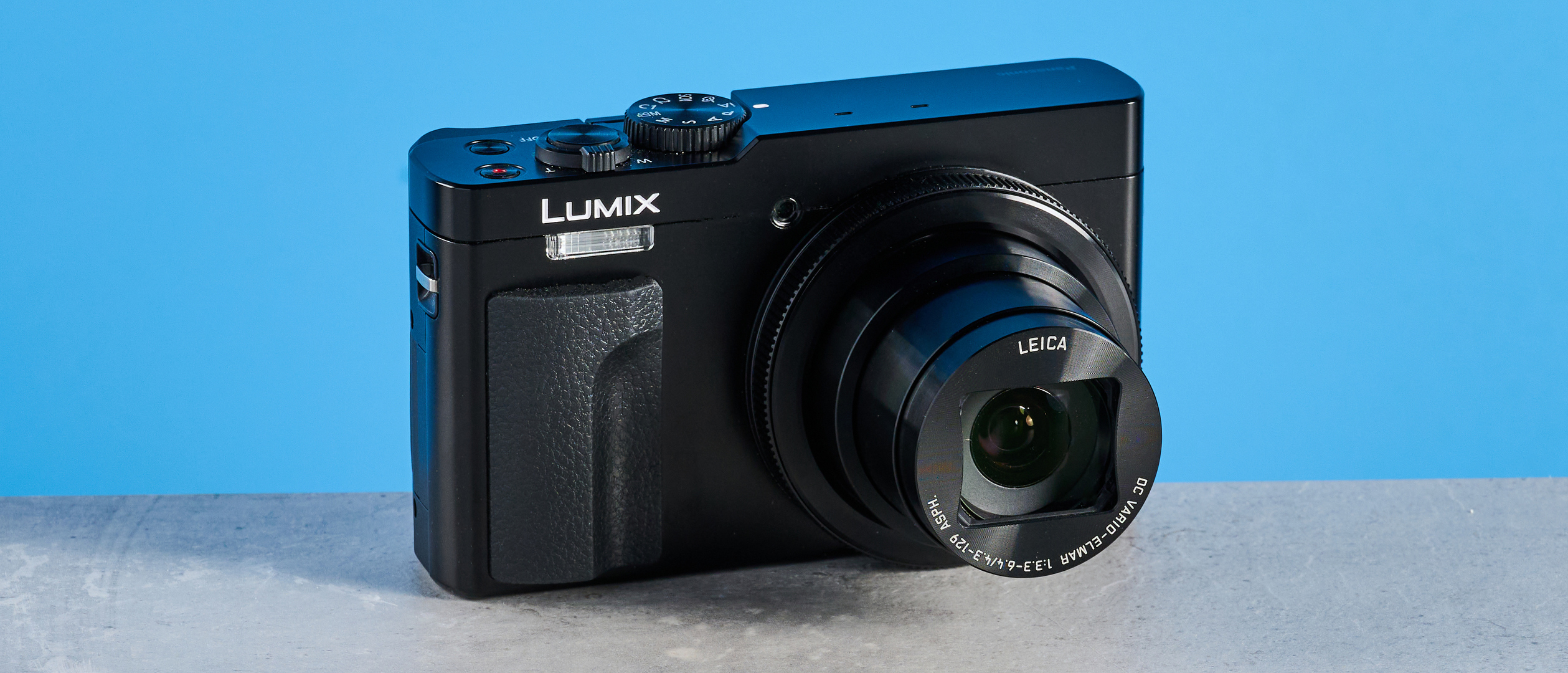Best cheap cameras in 2025
The best cheap cameras don't scrimp on quality
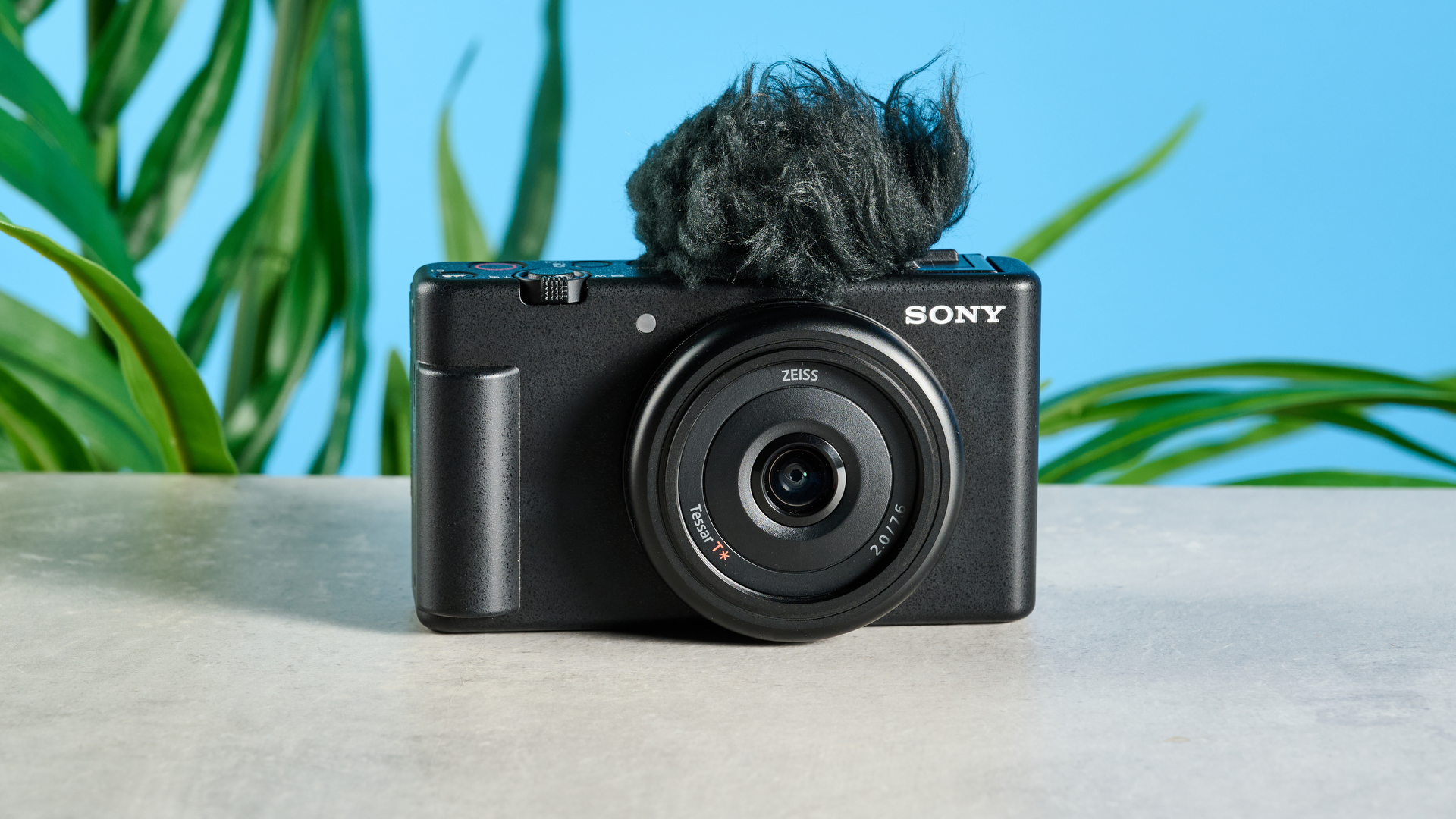
The best cheap cameras should give you the basic tools you need to get the photos or videos you want without breaking the bank. As head of both the reviews and cameras sections here at Tom’s Guide, I’ve rounded up the best cheap cameras to suit a variety of purposes.
Firstly, let's consider the different types of camera:
- Mirrorless and DSLR interchangeable lens cameras (ILCs) let you swap lenses for more creative control.
- Compact cameras are like mini mirrorless cameras with a fixed lens and are great for travel snaps.
- Rugged cameras are designed to withstand the elements for outdoor photography.
- Action cameras are small, waterproof video cameras and perfect for outdoors adventures.
- Vlogging cameras are designed for content creators, with nifty autofocus features to suit.
- Instant cameras let you print and share physical copies of your shots straight away.
- Film cameras shoot on traditional film and are perfect if you want an analog experience.
We've included a range of all of them on this page, and all have been tested thoroughly by the Tom’s Guide experts. There are plenty of options under $100, so no matter your budget or needs, there's something for you.
Without further ado, here are the best cheap cameras you can buy.
Disclaimer
Editor's note:
DSLRs are now obsolete as they use a mirror to reflect a scene into an optical viewfinder (OVF), which we no longer need (hence "mirrorless") thanks to the advent of electronic viewfinders (EVF). Almost all manufacturers have stopped producing DSLRs and lenses for them, so we only recommend mirrorless ILCs now.
The quick list
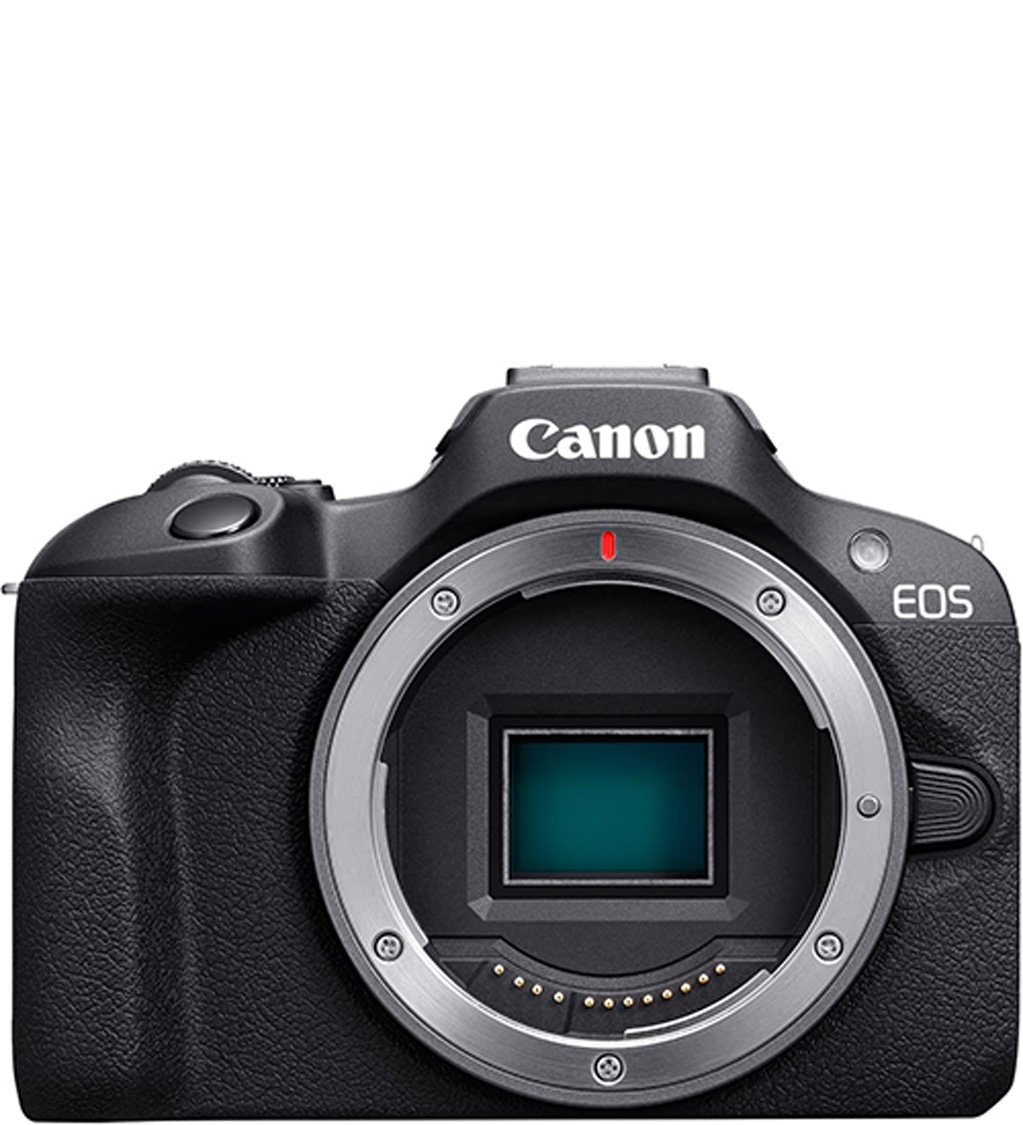
The best cheap mirrorless camera
Our favorite cheap mirrorless ILC camera offers beautiful stills, 4K/25p video, and strong AF.
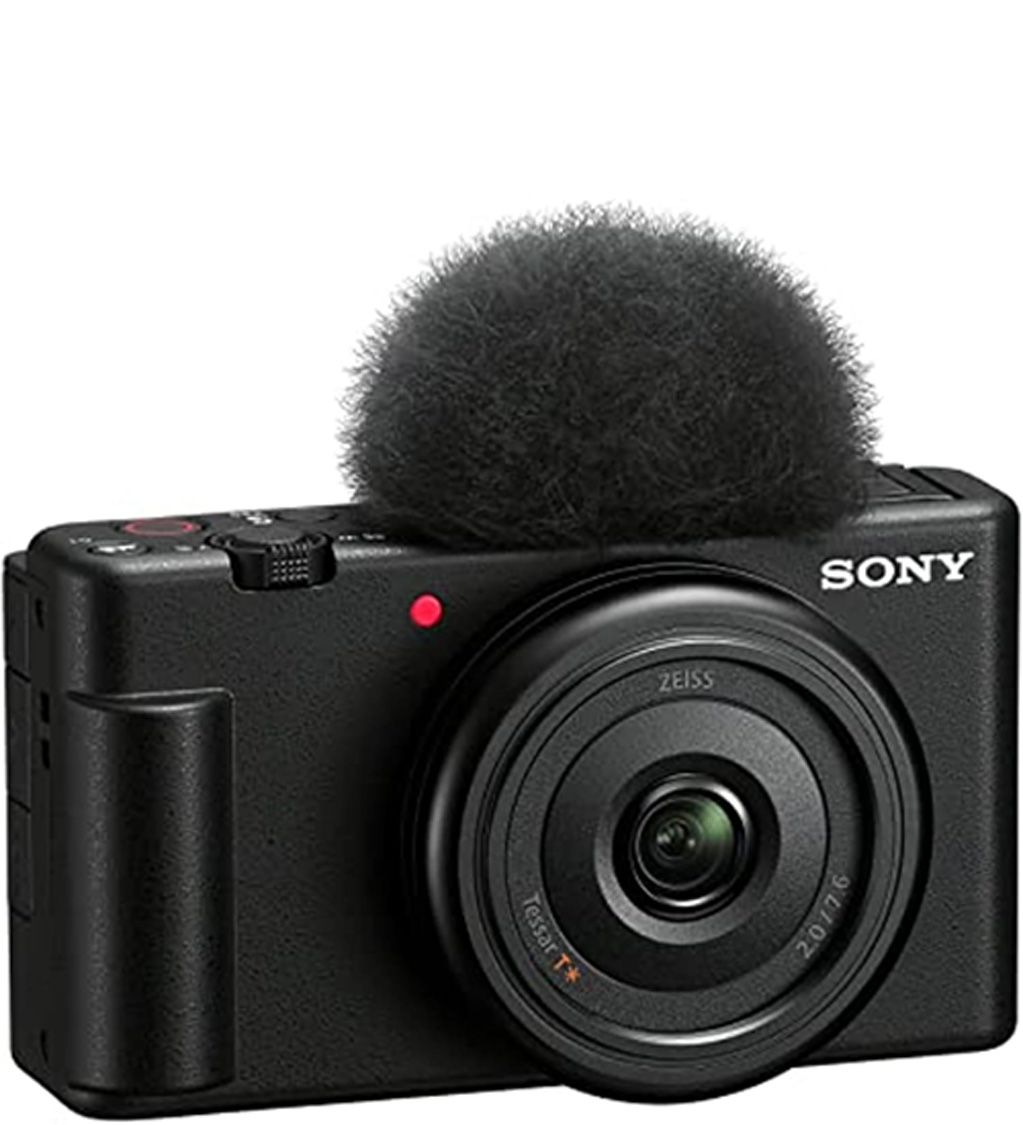
The best cheap vlogging camera
The ZV-1F packs some useful content creation features into a compact, affordable body.
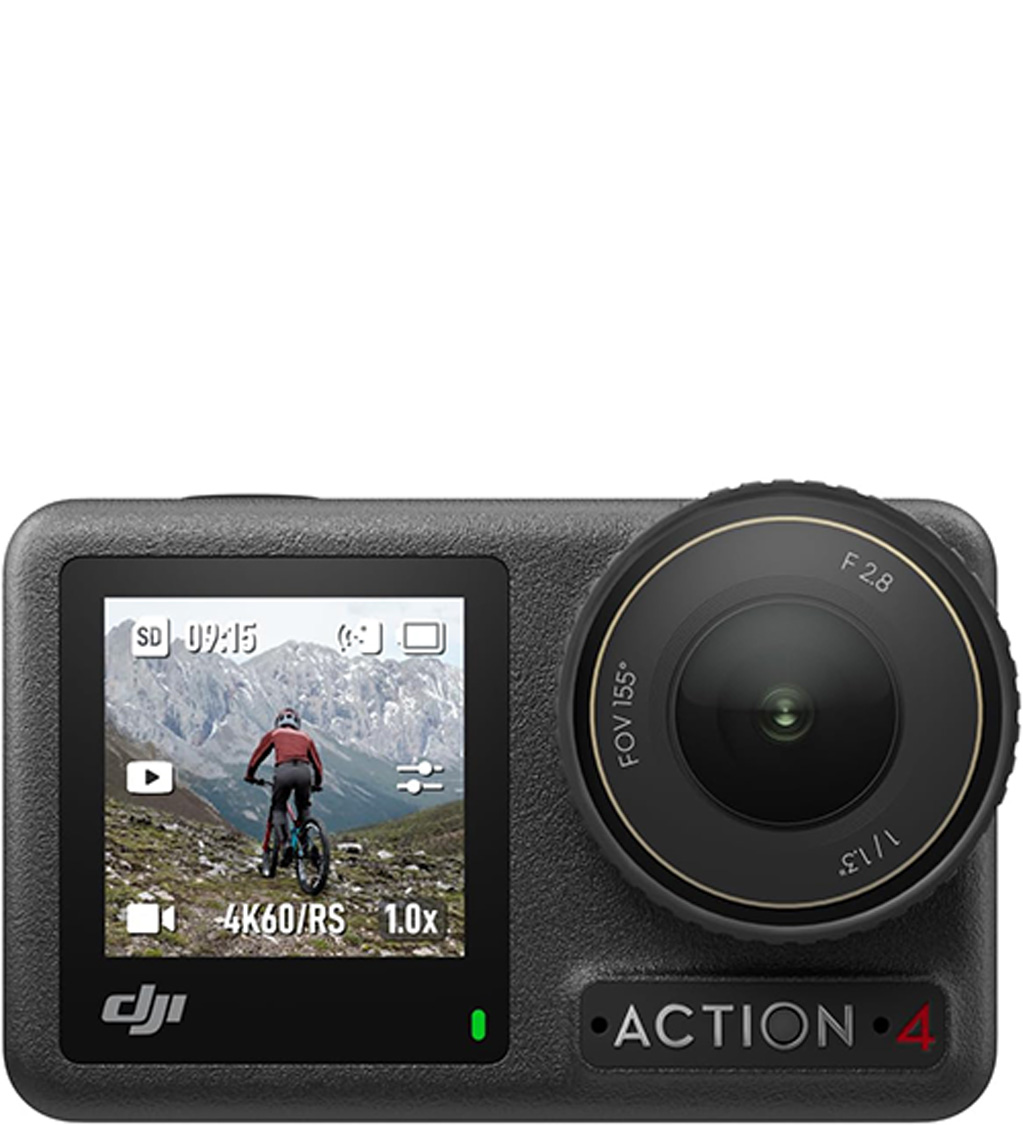
The best cheap action camera
The DJI Osmo Action 4 isn't the latest model, but is waterproof and shoots stabilized 4K/60p video.
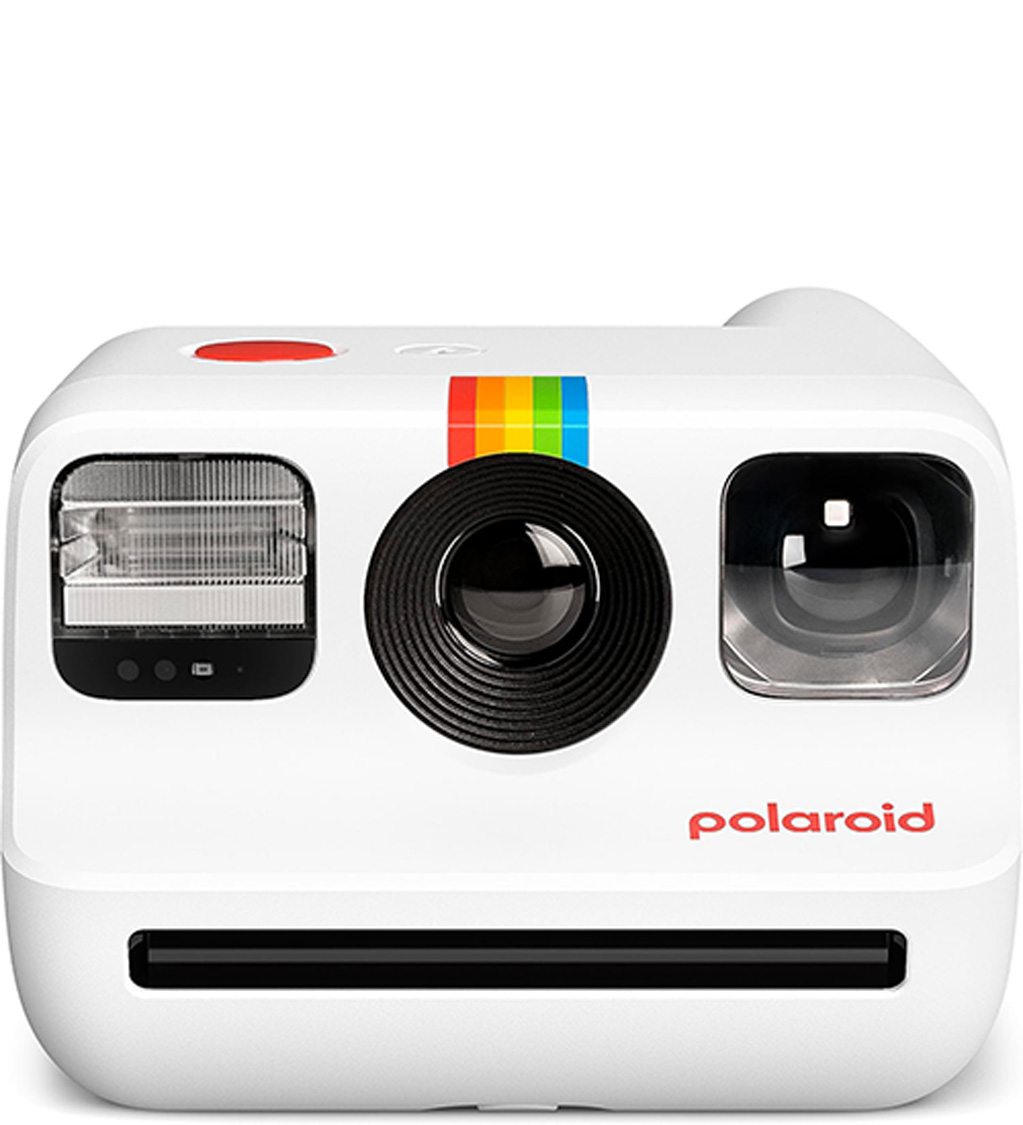
The best cheap instant camera
The Polaroid Go Gen 2 is super compact, produces lovely looking prints and is very easy to use.
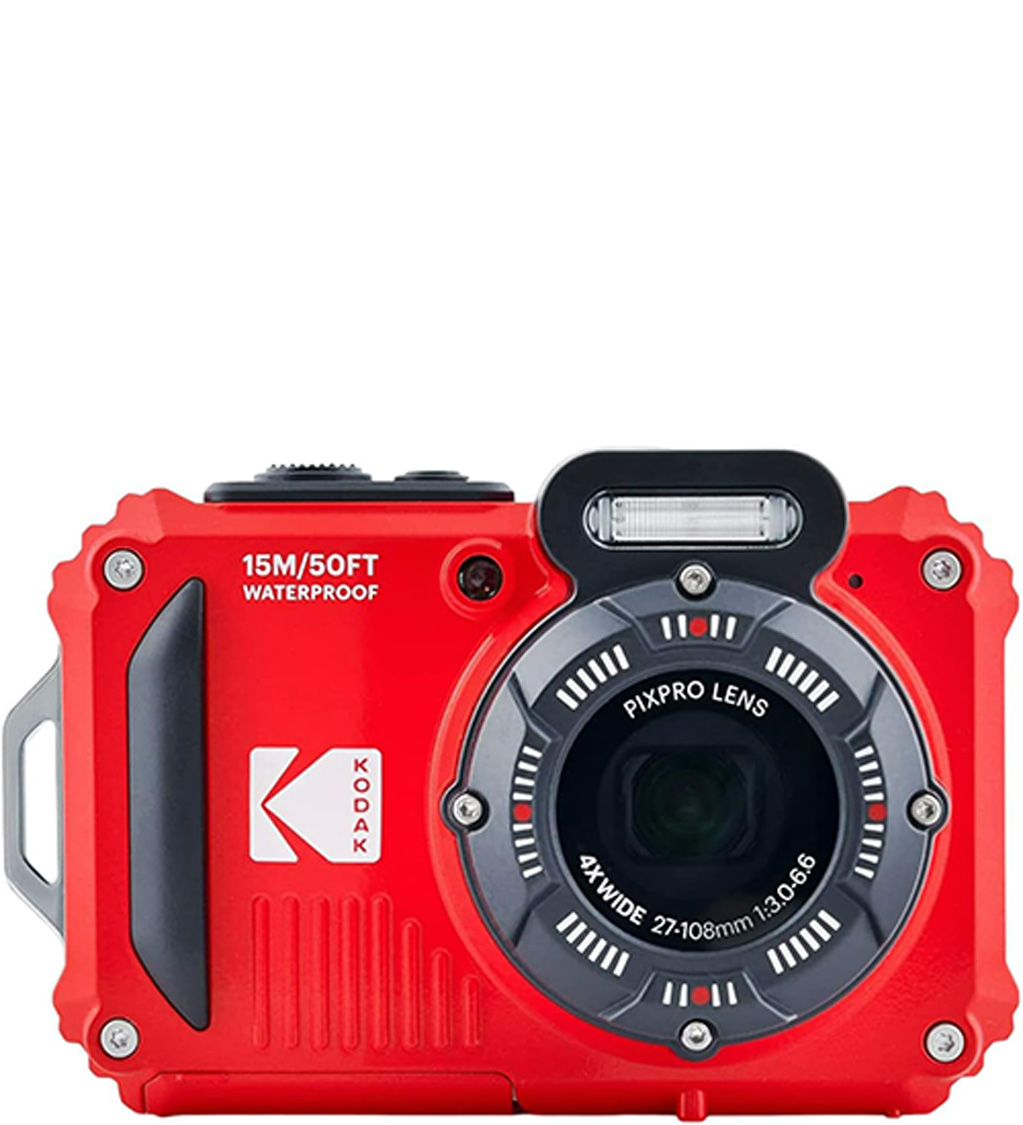
The best cheap rugged camera
This Kodak PIXPRO WPZ2 produces lovely stills and is incredibly rugged to withstand the elements.
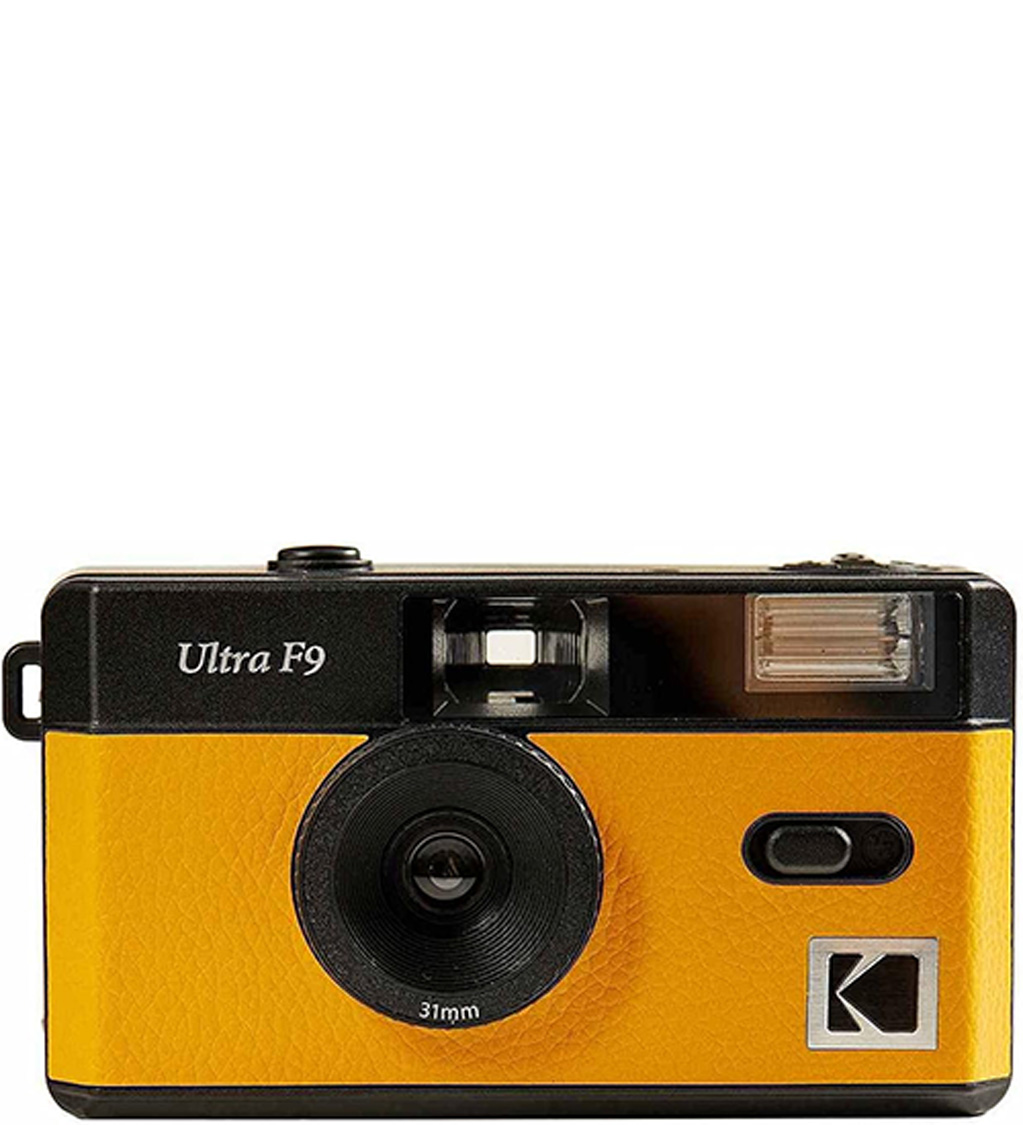
The best cheap film camera
Our favorite cheap film camera is an affordable way into analog photography, with a simple UI, lovely images and beautiful design.
The best cheap cameras in 2025
Why you can trust Tom's Guide
We've broken this guide up into the best cheap cameras for various people or situations. Many of them will fit the bill for multiple purposes, though, and we've linked our in-depth reviews for each camera so you can get the full rundown.
The best cheap cameras you can buy: Meet the experts

Pete is the Tom’s Guides reviews editor, and also edits the site’s cameras section. He was previously an editor for Canon’s editorial site, and has been a photographer for a decade. Pete loves getting his hands on and rigorously testing the latest mirrorless cameras. He’s also the Tom’s Guide action cameras expert, putting each action cam thoroughly through its paces.

Nikita tests some of the best cameras at Tom's Guide, putting each camera through rigorous testing by pushing battery life to the limit, analyzing build quality and features to determine whether it's good value for money. She's also the in-house instant cameras expert as she has been using instant cameras since 2015, and drones expert as she’s a licensed drone pilot.
The best cheap mirrorless camera
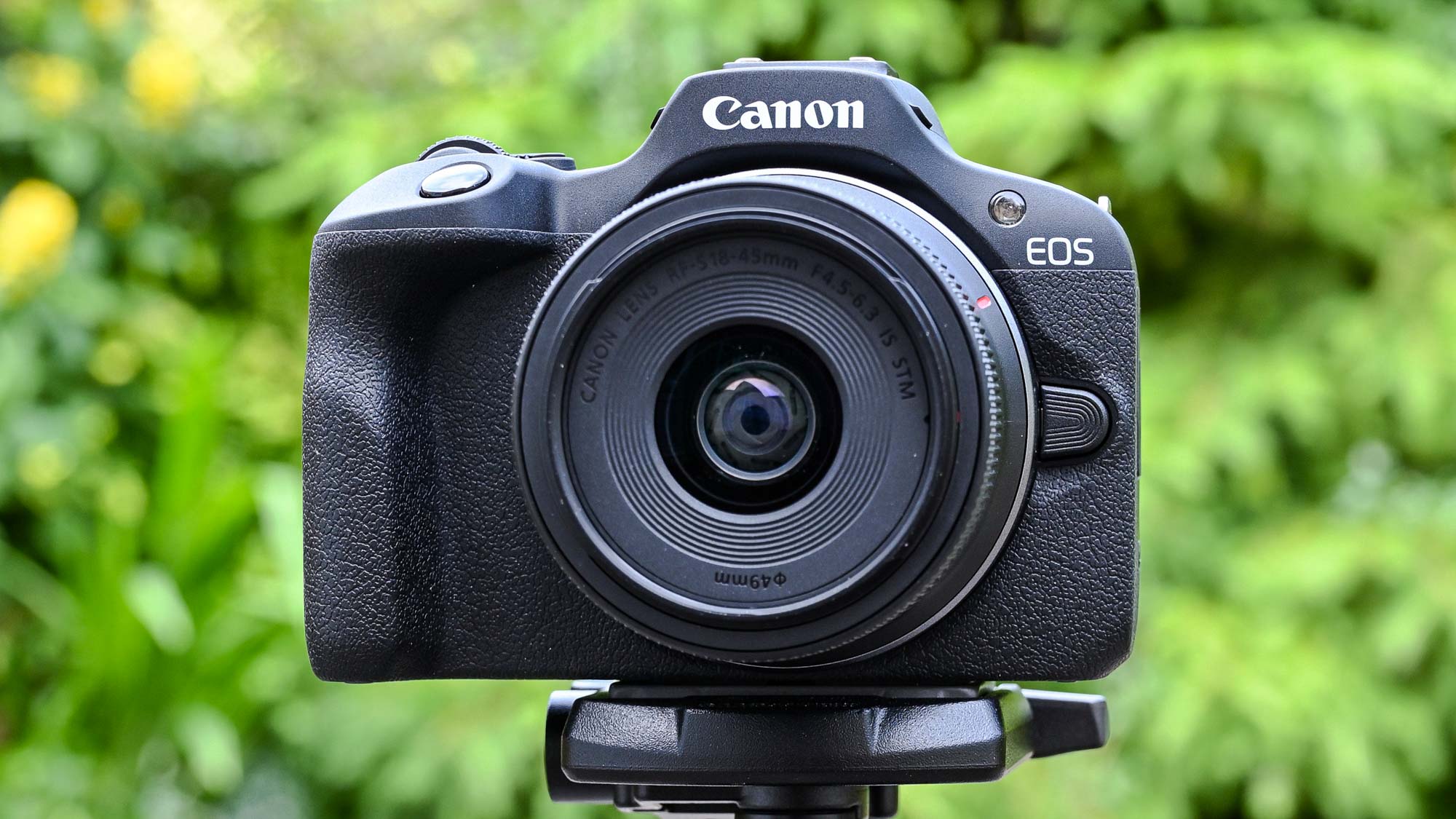
Specifications
Reasons to buy
Reasons to avoid
One-line review: The Canon EOS R100 is the cheapest way to get a new mirrorless interchangeable lens camera (ILC), and its excellent image quality and solid AF make it perfect for budding photographers.
Who is this for?
People who want to take photography seriously and have lots of creative control over their shots, whether they’re printing them or sharing them on Instagram. It’s ideal for anyone wanting an upgrade from their smartphone without breaking the bank.
Why is it the best cheap mirrorless camera?
The EOS R100 is about as affordable as mirrorless cameras get, yet still offers the essential perks of a “proper” interchangeable lens camera. It has a 24MP APS-C sensor which produces beautiful photos and 4K video. Combined with Canon’s excellent autofocus and the ability to swap lenses when creativity demands, the EOS R100 will give you everything you need to take Instagram-worthy photos.
What do we like?
✅ Beautiful photos: The EOS R100’s 24MP sensor produces beautiful photos with plenty of fine detail. In testing, we loved the natural colors this camera produces, rendering warm skin tones and vivid landscapes — this is Canon all over.
✅ 4K video: The EOS R100 isn’t a video camera, but will still shoot 4K at cinematic 24p, so if you want to dabble in a bit of video, you can!
✅ Great autofocus: Canon’s autofocus systems are legendary. And while the EOS R100 doesn’t have the brand’s very best AF with multiple detection modes (you’ll need the Canon EOS R50 for a taste of that), it still features human face and eye detection, making it great for portraiture and general use.
✅ Plenty of creative flexibility: This is the only camera on the list that’ll let you change lenses, which is a big deal. As you grow as a photographer, you can swap lenses to tailor the look and style of your photos.
✅ Solid build: Despite being lightweight and compact, this is a Canon camera, so you can rest assured that it’s built to a high standard and will give you many years of loyal service.
What don't we like?
❌ Fixed LCD: The EOS R100 has a fixed LCD, which makes it harder to shoot at odd angles, as you can’t articulate the display to suit. It isn’t a touchscreen either, which means you can’t tap to set focus points.
❌ Limited detection modes: As mentioned above, the EOS R100 only features human AF detection modes, so if you’re after a camera for wildlife photography, we’d recommend something with a more expansive AF system, like the EOS R50.
Canon EOS R100: Bottom line
The EOS R100 isn’t the most feature-packed camera, but packs in a huge amount of functionality and creative flexibility given its budget price tag. If you want a cheap camera to expand your creative horizons and improve your photography, this is the best one to buy.
Read our full Canon EOS R100 review.

The best cheap vlogging camera
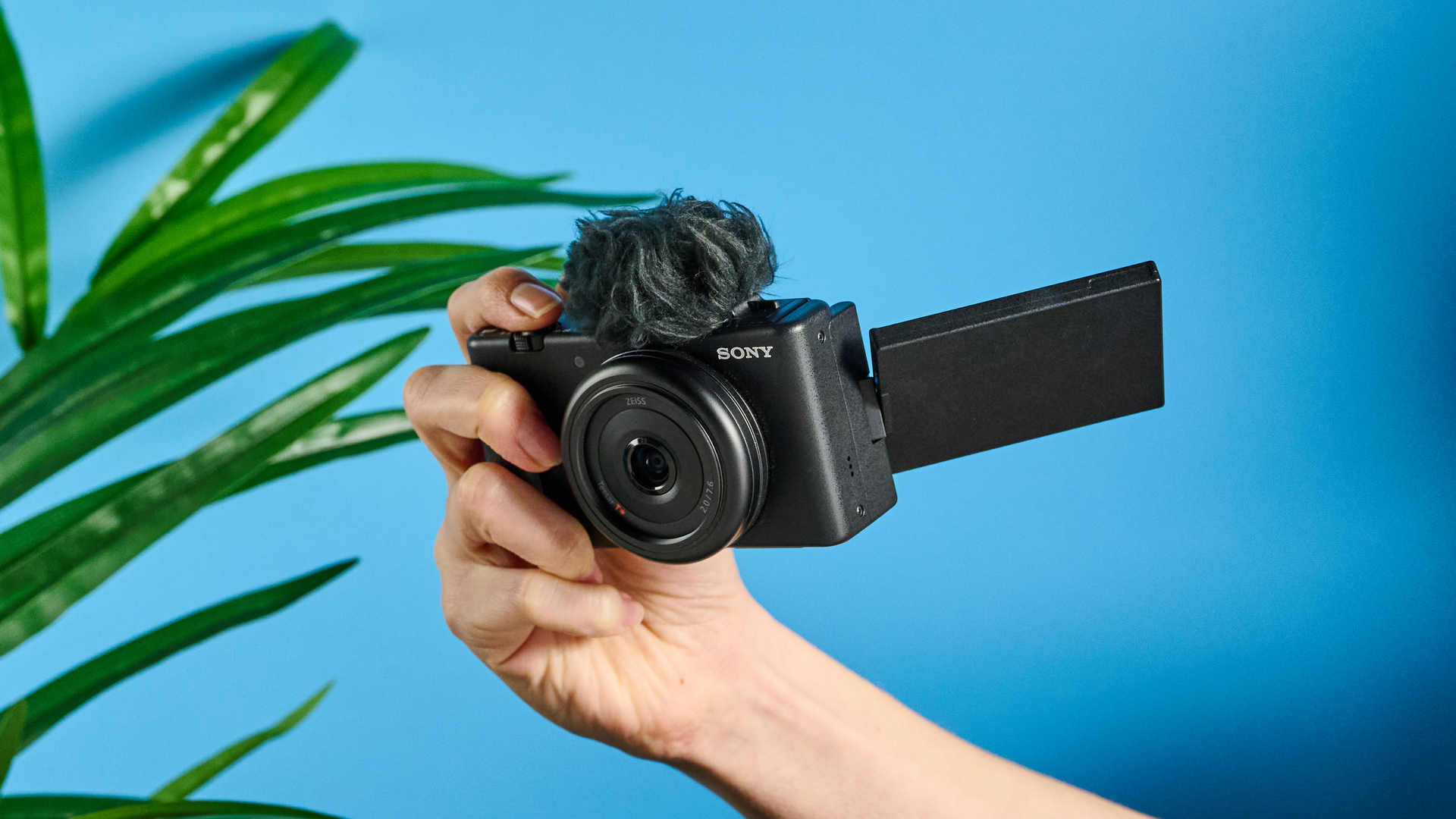
Specifications
Reasons to buy
Reasons to avoid
One line review: The Sony ZV-1F is packed with vlogging-specific features that make content creation easy, and it captures detailed 4K/30P video.
Who is this for?
People who are stepping up from smartphone videography, hobbyists, and vloggers looking to take their video content to the next level. It’s ideal for anyone looking to replace their smartphone as their primary vlogging tool while being on a budget.
Why is it the best cheap vlogging camera?
The Sony ZV-1F is packed with vlogging-specific features, like Product Showcase and Background Defocus, which are usually found on more expensive models. It’s perfect for on-the-fly content creation and to take travelling, thanks to its compact size. It also shoots lovely 4K/30P video, and its straightforward control scheme makes it extremely easy to use.
What do we like?
✅ Compact and portable: Measuring just 4.15 x 2.36 x 1.82 inches and weighing 0.5lbs, the ZV-1F is highly portable as it slips easily into most pockets, and it’s comfortable to hold with either one or both hands.
✅ Easy to use: With its straightforward control scheme and responsive LCD touchscreen, the ZV-1F is extremely easy to use, making the transition from smartphones to cameras seamless.
✅ Lovely video quality: The ZV-1F shoots 4K/30P video and 1080P footage at 5x slow motion by using 120fps. The results are sharp and detailed, and the camera’s autofocus system works well to keep subjects in focus.
✅ Product Showcase: Product Showcase works extremely well for product unboxing videos and reviews as the ZV-1F focuses on the subject closest to the lens while effectively blurring the background. For non-camera-savvy content creators, it makes it easy to create stylized footage.
✅ Great built-in mic: The ZV-1F is fitted with a directional three-way capsule mic which captures crisp and clear audio, helping you create content on the fly even if you don’t have an external microphone.
What don't we like?
❌ No IBIS: The ZV-1F doesn’t feature in-body image stabilization, which is fairly common in this price range. Instead, you’ll rely on Sony’s SteadyShot technology for capturing smooth and stable footage.
❌ Poor battery life: A single charge yields 360 shots when the monitor is always-on and 540 shots when Auto Monitor off is set to two seconds. This is much lower compared to the ZV-1F’s rivals.
Sony ZV-1F: Bottom line
The Sony ZV-1F is a fantastic camera for those stepping up from smartphone videography and looking to take their vlogging content to the next level — all while being on a budget. Its ease of use, compact body, great built-in mic and vlogging-specific features make it the best cheap vlogging camera.
Read our full Sony ZV-1F review.

The best cheap action camera
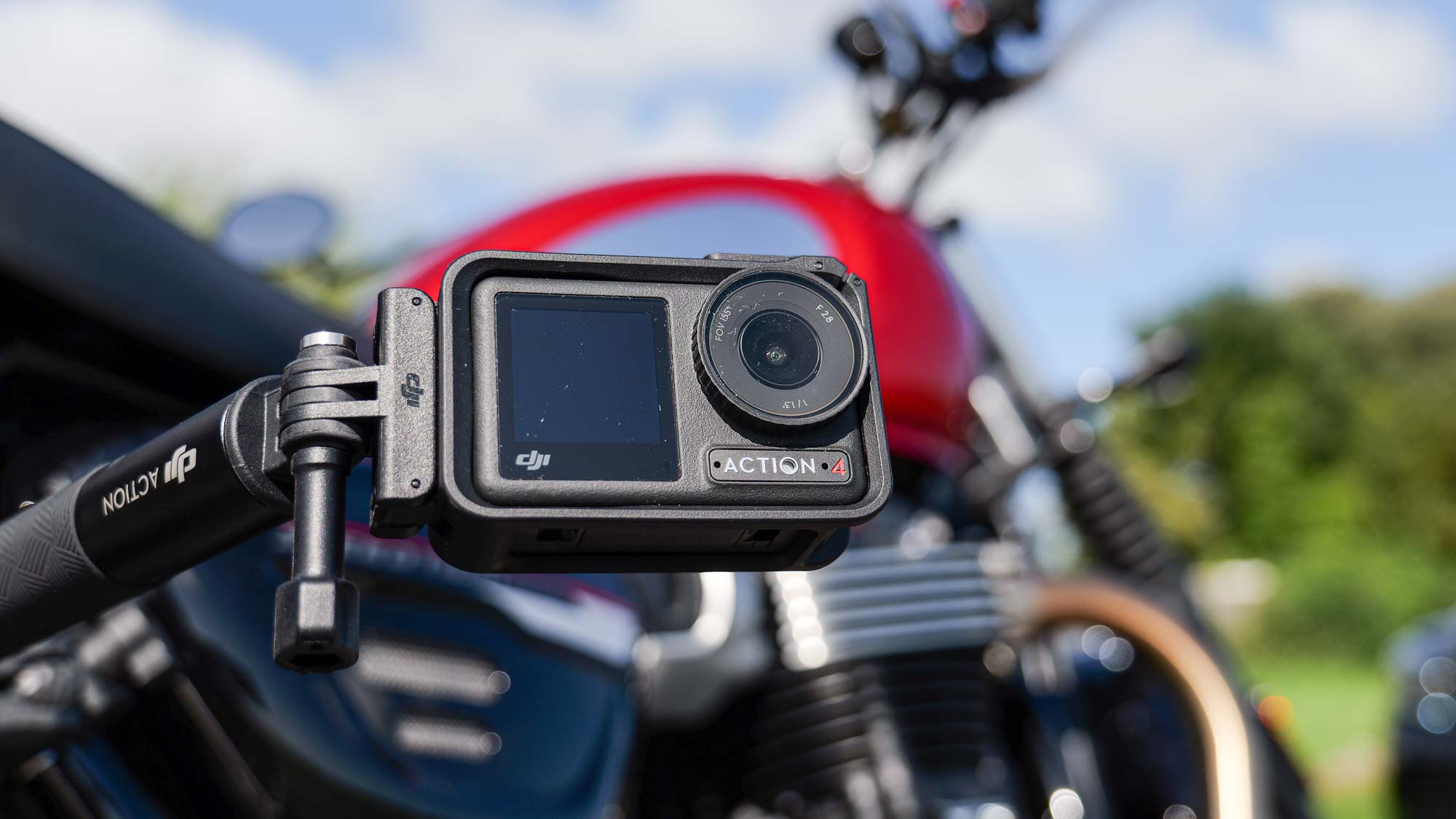
Specifications
Reasons to buy
Reasons to avoid
One-line review: The DJI Osmo Action 4 is a feature-packed professional action camera that's cheaper than ever now that it has been succeeded by a newer model.
Who is this for?
People who need a rugged video camera — that means content creators, YouTubers and vloggers, shooting video outdoors, especially if it’s high octane.
Why is this the best cheap action camera?
The DJI Osmo Action 4 shoots beautiful 4K at up to 120fps, and while YouTube (and most peoples’ monitors) still max out at 4K, you really don’t need more. It’s waterproof down to 59 feet without a case (you’ll only get better than that with its bigger sibling, the DJI Osmo Action 5 Pro) and is built to withstand almost anything the elements can throw at it. It also has a front selfie display for vlogging, and a quick-release magnetic mount for securely attaching and switching between accessories, like selfie sticks.
What do we like?
✅ 4K/120p video: The OA4 shoots beautiful 4K/60p footage, for capturing fast-paced action. If you want slow motion video, it’ll also shoot at up to 120fps in full 4K. It also packs a range of professional features, such as Log recording.
✅ Wireless mic hook up: The OA4 can hook up wirelessly to DJI mics, such as the fantastic DJI Mic 2, giving you professional audio quality with no cables or adapters needed!
✅ An oldie but a goodie: The Osmo Action 4 has now been succeeded by the DJI Osmo Action 5 Pro, driving the OA4’s price down! You can pick it up for just over $200, which is about as cheap as professional-quality action cams come.
✅ So much ruggedness: The OA4 is waterproof to 59 feet, and is fully equipped to withstand the rigours of the environment.
✅ Front vlogging screen: Thanks to its front screen, the OA4 functions well as a vlogging and selfie camera.
What don't we like?
❌ No higher than 4K: This camera tops out at 4K. That’ll be plenty enough for most people, but if you’re a pro shooter wanting to oversample 4K, you’ll be out of luck.
❌ Stabilization not the best: The OA4’s stabilization is decent, but not as good as the OA5 Pro or GoPro Hero12 Black. That said, it’s much better than other budget brand cameras at similar price points, like the Akaso Brave 8 Lite.
DJI Osmo Action 4: Bottom line
There's a reason the DJI Osmo Action 4 got the "Best Budget" award on our roundup of the best action cameras. Actually, there are a fair few reasons. Despite being over a year old, it’s still an outstanding camera for the money, and will record professional-quality 4K video, with great internal audio, easy wireless mic hookup, useful vlogging features and all the ruggedness you could need. Its stabilization isn’t the best, but it’s fine for most uses, and the lack of +4K recording likely won’t be a problem to anyone in the budget market.
Read our full DJI Osmo Action 4 review.

The best cheap instant camera
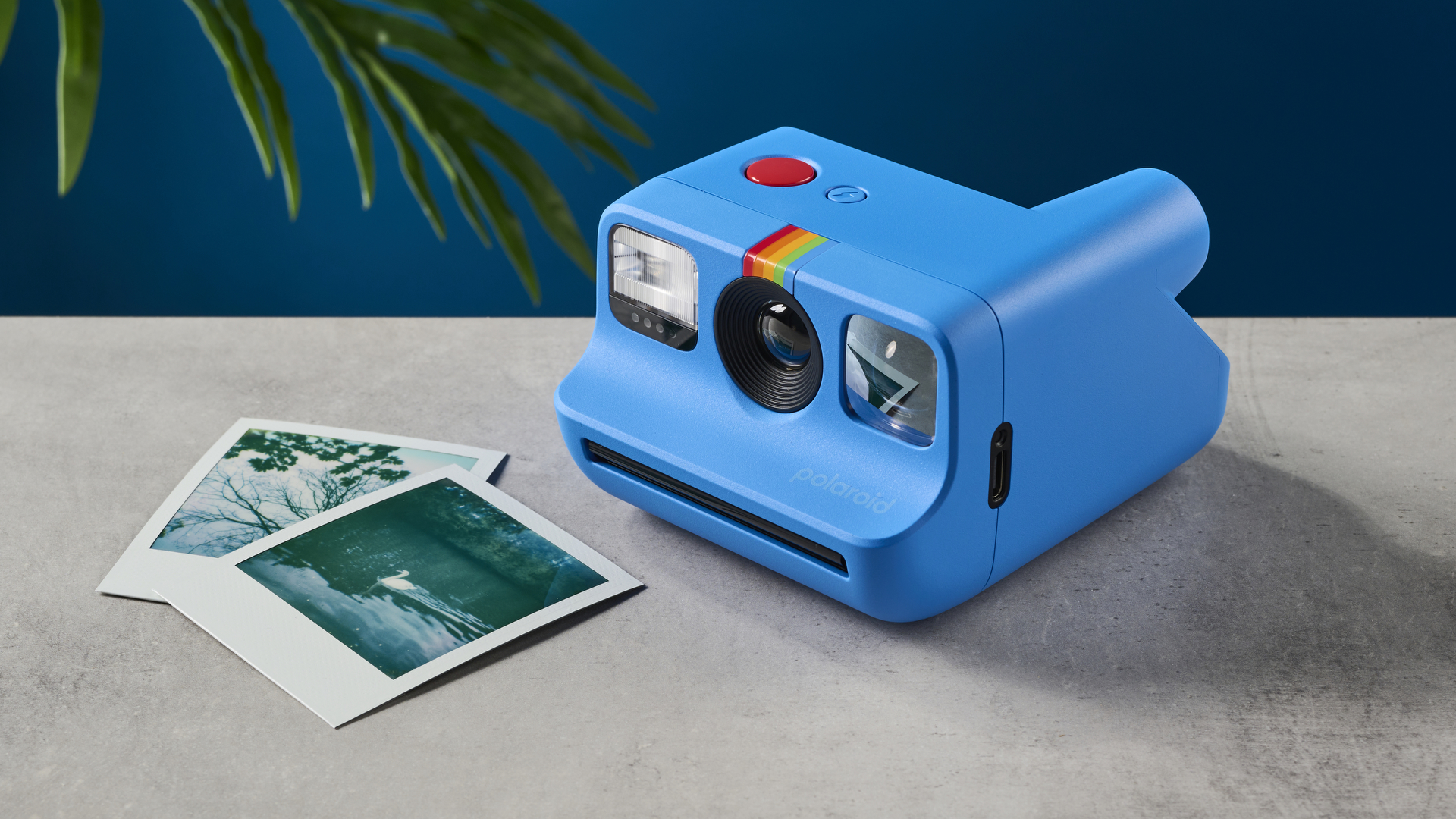
Specifications
Reasons to buy
Reasons to avoid
One-line review: Our favorite budget instant camera, the compact Polaroid Go Gen 2 takes great images and is incredibly easy to use.
Who is this for?
People who want to print their photos quickly and easily. As an instant camera, it’s perfect for documenting nights out with friends, producing photos that you can physically share immediately. It’s also quite the bargain when you take into account the features it offers.
Why is this the best cheap instant camera?
The Polaroid Go Gen 2 produces lovely and detailed retro prints, especially in bright conditions, thanks to its maximum aperture of f/9, a top shutter speed of 1/300s, a built-in flash, a double exposure mode, and more — all for well under $100. It’s also very small, so it can be slipped into a pocket or carried around your wrist — its profile is a little awkward, though, so we prefer the flatter Kodak Mini Shot 2 Retro for travel.
What do we like?
✅ Great images in bright conditions: The prints produced by the Go Gen 2 come out detailed and look well-lit while maintaining a retro aesthetic. The built-in flash is great too, with a range of 2m which makes it perfect for photographing people.
✅ Fun double exposure mode: The Go Gen 2 introduces a double exposure mode which the first-gen didn’t have. This mode allows you to get really creative and the results are detailed and sharp.
✅ Very user-friendly: Equipped with just three buttons, the Go Gen 2 is very user-friendly so it can be used by anyone, regardless of age or photography experience. Holding the camera and using it with one hand is just as comfortable as using both hands.
✅ Super compact: It'll fit in a bag or pocket and won't be a chore to carry about all day.
What don't we like?
❌ Expensive film: Polaroid film is slightly pricier than Fujifilm Instax film used by other instant cameras like the Fujifilm lnstax mini 12. The Go Gen 2 uses Go film, a double pack (16 pieces of film) of which costs $19 / £18, with each print costing approximately $1.12. On the other hand, an Instax mini print costs just 75¢.
❌ No macro mode: The Go Gen 2 doesn’t have a dedicated macro mode, unlike the Fujifilm Instax mini 12 which comes with a clip-on macro attachment. If you want to take photos of flowers, for example, with the Go Gen 2, it’ll take lots of trial and error.
Polaroid Go Gen 2: Bottom line
Cheap and very cheerful, the Go Gen 2 impresses on a lot of fronts. Its cute design combined with its power to take great shots makes it feel pricier than it actually is. It's incredibly easy to use and can be taken anywhere, too. It isn't the most feature packed, but is easily the best cheap instant camera for your money.
Read our full Polaroid Go Gen 2 review.

The best cheap rugged camera
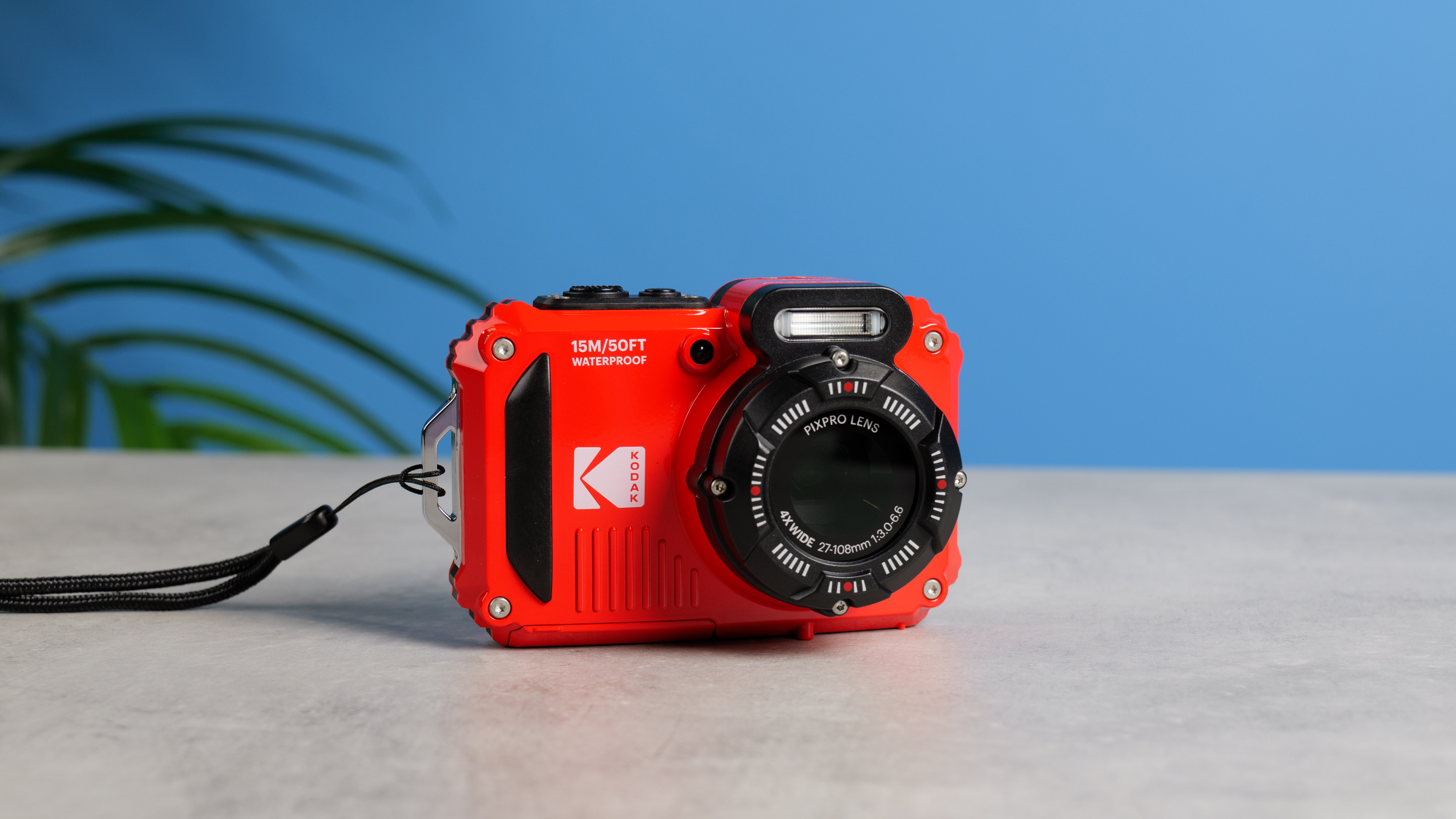
Specifications
Reasons to buy
Reasons to avoid
One-line review: For the money, they don't come more hardy than the Kodak PIXPRO WPZ2, which impressed us with its competency, image quality and of course, its ruggedness.
Who is this for?
The Kodak PIXPRO WPZ2 is perfect for adventurers and travel photographers who like to push their camera to the limit, but it’s also for those who don’t want to spend too much money on one. For $179, you get a rugged waterproof, dustproof and shockproof camera that produces good images and 1080P/30fps video, and it has decent battery life too.
Why is this the best cheap rugged camera?
The PIXPRO WPZ2 is waterproof up to 15m/49ft and it’s fully dust-sealed against fine and solid particles. It’s also shockproof and can take a beating, even if it’s dropped from 2m/6ft. This camera is, therefore, great for travel photography as it’s very portable. The PIXPRO WPZ2 is extremely easy to use too.
What do we like?
✅ Ruggedness: For just $179, the PIXPRO WPZ2 is waterproof, dustproof and shockproof, making it the ideal travel companion. It looks like an adventure camera too, with a ruggedly handsome design.
✅ Great photos: Although the camera is limited to taking just 16MP photos, the photos turn out detailed and have a vintage look to them. The camera also has a 24x zoom to aid in all shooting situations.
✅ Good battery life: The camera has a CIPA rating of 200 shots or 70 minutes of 1080P/30fps recording. For a camera of its (small) stature, this is respectable battery life.
✅ Compact & portable: The PIXPRO WPZ2 is also super compact, which combined with its ruggedness literally makes it a 'take anywhere' camera.
What don't we like?
❌ Basic feature set: Similar to some other compact cameras, the PIXPRO WPZ2 has a very basic feature set which is limited to 16MP stills and 1080P video.
❌ Subpar low-light performance: The camera adjusts the shutter speed and aperture automatically and its low-light performance isn’t anything to write home about. The camera doesn’t show you how long or short the shutter speed is, which can lead to camera shake.
Kodak PIXPRO WPZ2: Bottom line
Overall, the PIXPRO WPZ2 is a fantastic outdoorsy camera that can be used underwater, on hikes in dusty conditions, and it can survive some falls too. Alongside this, the fact that it has good battery life and captures good stills make it the best cheap camera for outdoor adventurers.
Read our full Kodak PIXPRO WPZ2 review.

The best cheap film camera
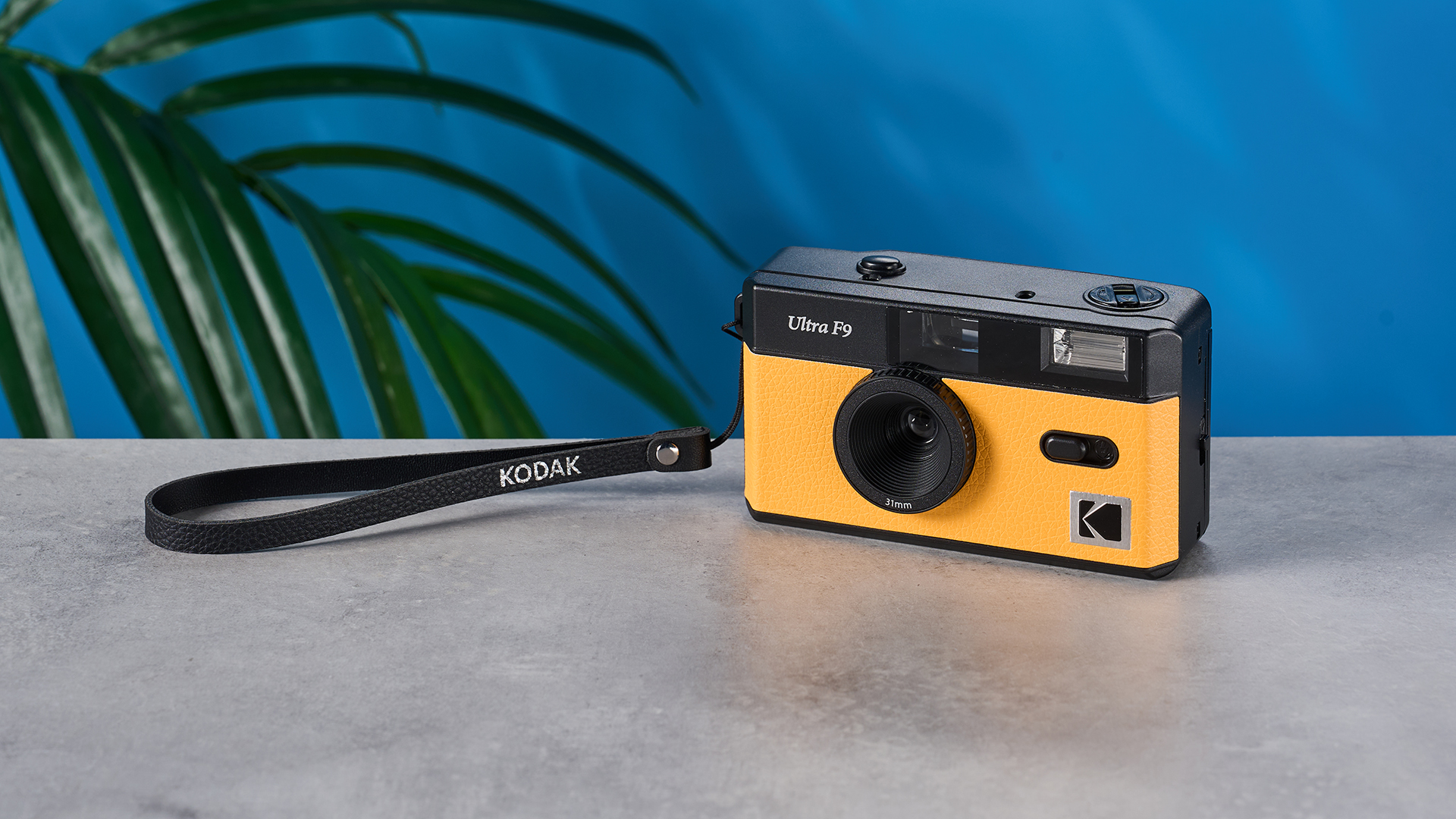
Specifications
Reasons to buy
Reasons to avoid
One-line review: The Kodak Ultra F9 takes great photos and is incredibly affordable at under $50, making it the ideal starter film camera.
Who is this for?
Fans of film photography or for those just getting started in it. Costing just $49, this reusable film camera produces lovely images in bright conditions, it’s extremely easy to use and is very compact and lightweight, making it great to capture holiday snaps on. The Ultra F9 35mm is fit for those looking to populate their social media feed with film photos.
Why is this the best cheap film camera?
Not only is the Kodak Ultra F9 35mm inexpensive, but so are film and processing costs. For $49, the Ultra F9 35mm is very easy to use as the camera adjusts shutter speed and exposure automatically, and photos turn out great with a retro touch and plenty of detail.
What do we like?
✅ Ease of use: The Ultra F9 35mm is an extremely easy camera to use thanks to the straightforward control scheme. It houses just two buttons so it can be used by anyone, and loading and unloading film is simple too.
✅ Great photos in bright conditions: The Ultra F9 35mm captures lovely images in bright conditions with a retro touch, and you don’t need to worry about adjusting exposure or shutter speed as this is done automatically.
✅ Low film costs: 35mm film is easy to procure and is inexpensive, as one roll (36 exposures) costs just $8 / £11. Processing costs are low as well, and it shouldn’t cost more than $20 / £17 on average.
✅ Lightweight and compact: This is a simple camera, which means it's lightweight, plus it's small enough to fit easily in a pocket.
What don't we like?
❌ Can struggle in low light: The Ultra F9 35mm has a fixed f/9 aperture which is designed mainly for brighter conditions. However, it has a built-in flash for dimly lit environments and you can buy more sensitive film for low light.
❌ Tiny viewfinder: The Ultra F9 35mm has a very small viewfinder located right above the film door on the back. Those who wear glasses may struggle to look through it.
Kodak Ultra F9 35mm: Bottom line
Overall, the Kodak Ultra F9 35mm is a fantastic choice for those starting out in film photography. It’s reusable so after the initial spend, you’ll just need to spend money on batteries and film — neither of which cost a lot. It’s easy to use, compact and portable, and it produces charming retro photos, all of which make it the best cheap camera for film lovers.

The best cheap camera for travel
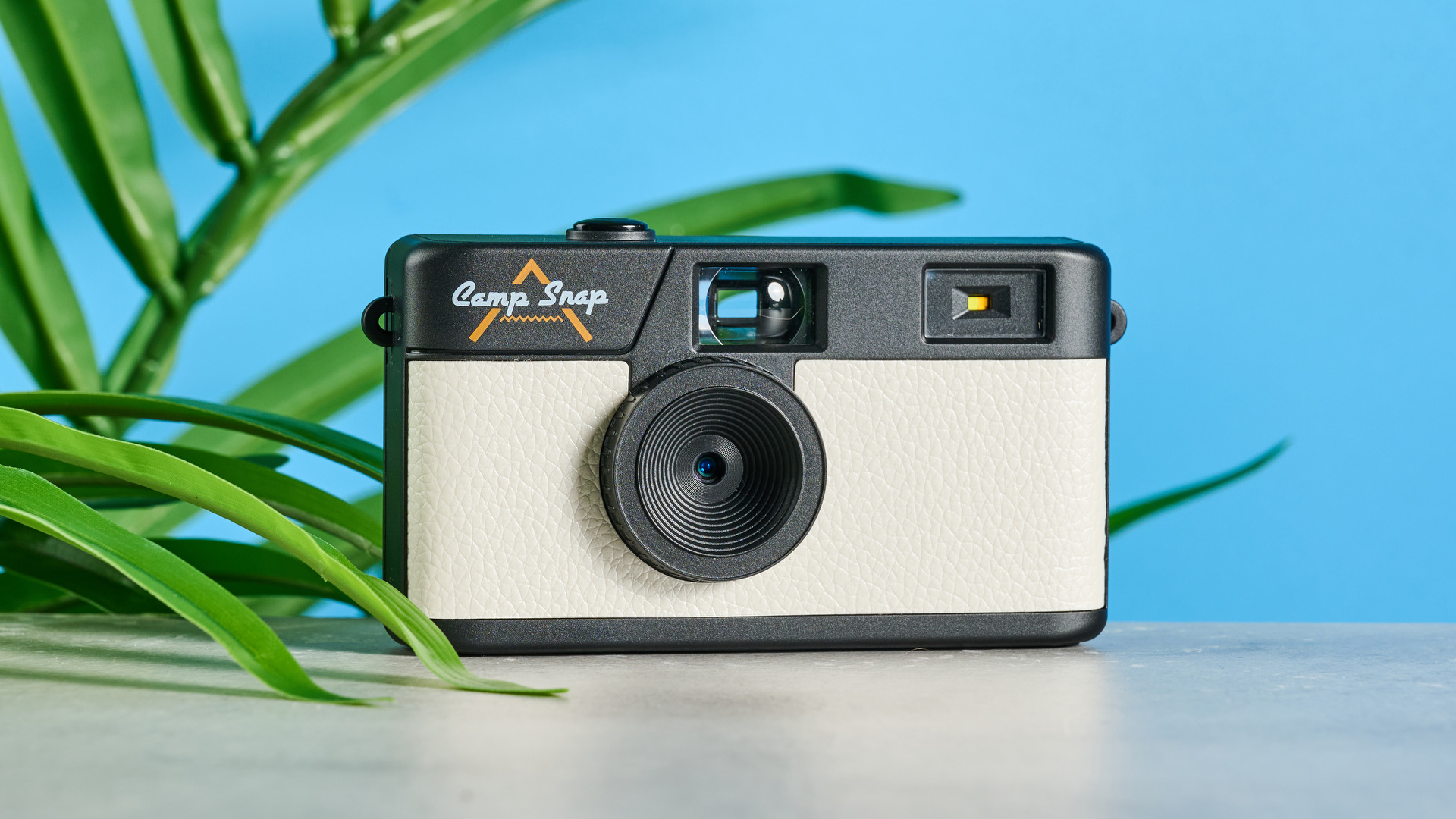
Specifications
Reasons to buy
Reasons to avoid
One-line review: The Camp Snap is super pocket-friendly thanks to its compact design and light weight. It takes great photos and the lack of a screen means you can live in the moment and look at your photos only after you’re back at your desk.
Who is this for?
The Camp Snap is built for travellers who want to live in the moment and not miss anything when they’re too busy reviewing the shot they’ve just taken. It’ll also suit people who want to take their first steps into digital photography as it has a very straightforward control scheme, and it captures lovely photos in bright conditions.
Why is this the best for travel?
The Camp Snap is very compact and easy to use with either one or both hands. It’s thin, short and light, perfect for slipping into a pocket or travel bag. It doesn’t have a rear screen to distract you, and you can rely on it to capture detailed photos in bright conditions. Photography novices and even children shouldn’t have any issue using the Camp Snap as it features just two buttons (shutter release and flash).
What do we like?
✅ Portability: The Camp Snap measures just 4.52 x 2.36 x 0.98 inches and weighs only 3.28oz, which means you can easily carry it in your pocket or handbag without feeling weighed down. It’s made of hard high-quality plastic so it’s durable too.
✅ Ease of use: The Camp Snap has two buttons: one for shutter release and power, and another for flash control. These make it very simple to use.
✅ Long battery life: Camp Snap claims that this camera can shoot 500 photos on a single charge. In our testing, we managed to get 459 photos which is excellent. It’s rechargeable so you don’t need to worry about environmental waste created by disposable batteries either.
✅ Cheap: The Camp Snap costs just $65 / £53, making it one of the cheapest cameras we’ve tested. It’s great value for money.
What don't we like?
❌ Shutter lag: The Camp Snap’s shutter response is delayed, so when you press the shutter button, the camera takes a second or two to respond. This means that when you press the button and move the camera away right after, your photo may come out blurry.
❌ No camera strap included: While the Camp Snap has hooks for a camera strap or lanyard, one isn’t provided in the box.
Camp Snap Screen-Free digital camera: Bottom line
The Camp Snap is a great camera for travellers as long as you don’t mind the delayed shutter response. It’s a standout choice for travel photography thanks to its compact and lightweight body and its ability to capture great stills in bright conditions. It's also super compact and has a very slim profile making it easy to stash away. These factors make it the best cheap camera for travellers.

The best cheap compact camera

Specifications
Reasons to buy
Reasons to avoid
One-line review: The adorable Instax Pal takes "compact" to a new level and takes great photos, plus it can be used with Instax printers.
Who is this for?
Anyone seeking a pocket-sized camera for casual photography or to use at a social gathering. Its ease-of-use and simplicity make it ideal for beginners while its compatibility with Instax printers will appeal to retro print fans. And it's so small that you can take it anywhere.
Why is this the best tiny camera?
The Instax Pal delivers a unique blend of portability, ease-of-use, retro images, and a cutesy design at just $99. It’s perfect for parties as it takes surprisingly detailed images, and you can use the companion app to add stickers, text and more. Its two-button control scheme makes it very easy to use, and you can connect it to a compatible Instax printer to quickly print photos.
What do we like?
✅ Cute, portable design: It measures just 1.74 x 1.69 x 1.66 inches and fits right into your palm and weighing just 1.44 ounces, its weight is negligible too. It comes in an array of fun colorways, making it the cutest camera on this list.
✅ Fun factor: From its playful start-up and power-down sounds to its app that lets you add stickers and text to photos, the Instax Pal adds a whimsical touch to photography.
✅ Retro-style images: The Instax Pal takes 4.9MP photos with a retro touch, perfect for sharing on social media or printing off with an Instax printer. Images taken at night turn out great, as do selfies — group or solo.
What don't we like?
❌ App dependency: The Instax Pal is heavily reliant on its companion app as you need it for real-time photo previews, remote shooting, editing, and more. Without it, you’re essentially shooting blind.
❌ No real viewfinder: The Instax Pal comes with an “attachable viewfinder” which is more decorative than functional as it doesn’t provide accurate framing, leading to mismatched shots that can disappoint, especially if you’re aiming for precision.
Instax Pal: Bottom line
The Instax Pal is a fantastic camera for people who want to have fun with their friends. Its charm, portability, and creative potential make it a standout choice for creative photography, and this is why it’s the best cheap camera for social gatherings.
Read our full Fujifilm Instax Pal review.

The best cheap drone
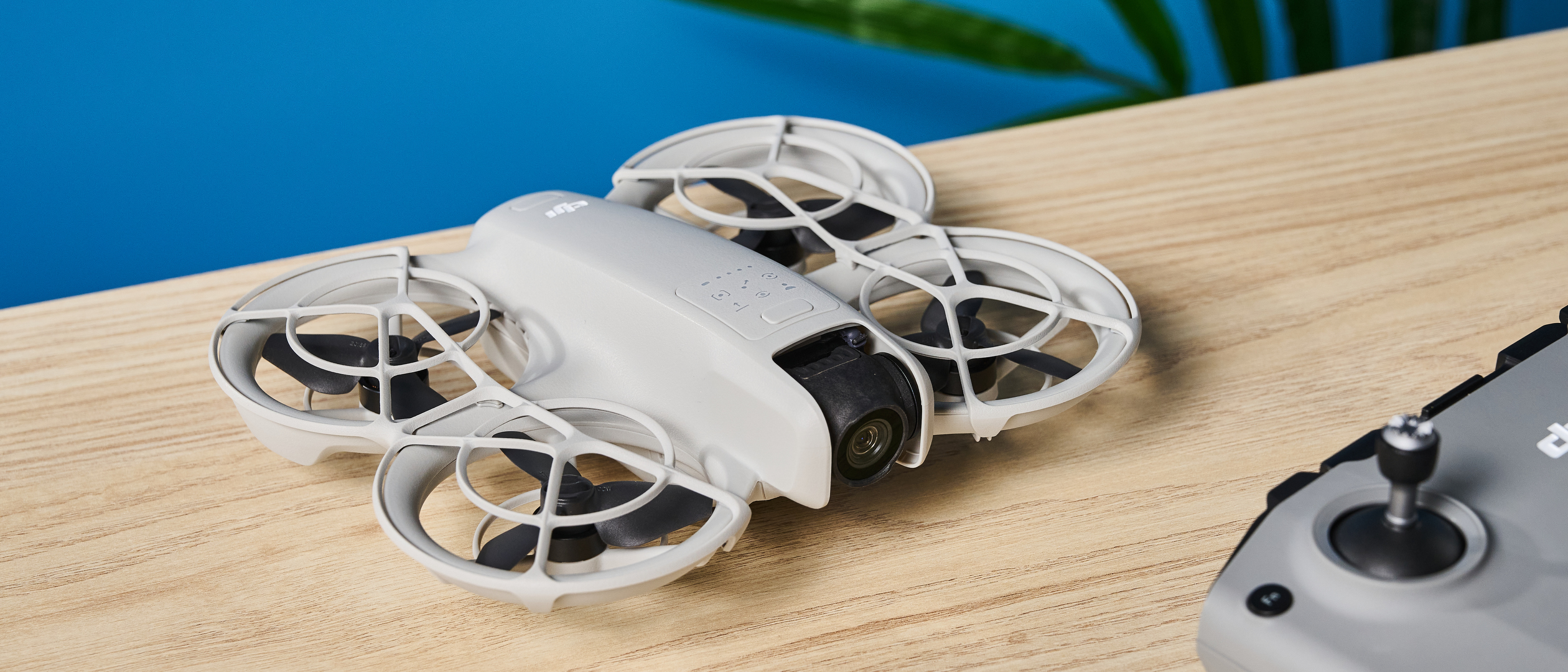
Specifications
Reasons to buy
Reasons to avoid
One-line review: Despite its tiny stature and sub-$200 price, the DJI Neo is absolutely stuffed to the brim with features and doesn't require FAA registration.
Who is this for?
The DJI Neo is for drone novices or enthusiasts on a budget who are looking to enter the world of drone photography. It has a sub-$200 retail price. For the features it offers, this drone is excellent value for money.
Why is this the best cheap drone?
The Neo is great for those starting out in drone photography because everything is done automatically — from exposure to ISO. It’s extremely easy to fly either with your smartphone or the RC-N3 controller, and its small size makes it the perfect travel companion. The Neo is capable of shooting 4K video at 30fps and capturing 12MP stills.
What do we like?
✅ Easy to fly: You can control the Neo either via the DJI Fly app on a smartphone or the RC-N3 controller, and both ways are straightforward. The RC-N3 comes with two detachable joysticks which are highly responsive and comfortable to use for long hours.
✅ User-friendly app: DJI's app is free to download and easy to use, while also providing lots of functionality and control.
✅ Compact and lightweight: The Neo weighs just 4.76 ounces which means you don’t need to obtain a license to fly it (but it’s still worth checking local laws before flying). This also means it’s very easy to travel with.
✅ Smooth 4K footage: The Neo shoots 4K video at 30fps or 1080P at 60fps, which is great for the price. Footage is smooth with plenty of detail, as is panning across a scene. Its f/2.8 aperture also delivers good results in moderately lit conditions.
✅ Very affordable: At under $200, this is one of the cheapest and best drones you can buy.
What don't we like?
❌ Short flight time: On a single charge, the Neo has a flight time of just 18 minutes which is about half the time you get with DJI’s other drones. It’s worth investing in the Fly More combo which gives you two spare batteries to bump the total flying time up to 54 minutes.
❌ No obstacle avoidance: Unlike pricier DJI drones, the Neo doesn’t feature smart obstacle avoidance. This means that the drone can’t automatically dodge walls or trees, so you’ll have to be mindful of its position in the air at all times.
DJI Neo: Bottom line
The Neo is a beginner-friendly drone that doesn’t cost a fortune, making it the ideal choice for aerial enthusiasts. The ability to capture gorgeous 4K footage and detailed stills, combined with its ease of use and lightweight body, make the Neo the best cheap drone camera.
Read our full DJI Neo review.

How to choose the best cheap camera
When buying a cheap camera, you’re naturally going to have to sacrifice a few things. The latest and greatest cameras simply don’t come cheap. Usually, you’ll either have to accept an older model, or sacrifice features.

However, you absolutely don’t have to sacrifice quality. You can pick up some great cameras for well under $100, and they aren’t just cheap crap. And that’s where we come in! This guide is designed to help you filter out the cameras that are cheap, yet still great quality and built to last.
The specific features you need to look for will depend on what you’re using the camera for. If you want to take really nice photos and grow as a photographer, then you’ll want a camera with a larger sensor, decent megapixel count and good autofocus — that means you’ll need to splash out on a DSLR or mirrorless camera.

Shooting video? You’ll want 4K footage, decent stabilization and the ability to connect external microphones. A vlogging camera is ideal, or an action camera if you’ll be shooting outdoors or in extreme environments. If you’re after sky-high footage, then you’ll want a drone (and yes, you can absolutely pick up great drones without breaking the bank).
Want to print your photos? You have a few options. The high-resolution sensors in mirrorless cameras will yield the best results when printing digital images. If you want the film look, you can go for an instant camera, which will be best for immediate printing and documenting social events, or a film camera, which will produce higher quality prints but requires film to be developed.
If you need a camera for travel, then it’s all about portability. You’ll want something that takes decent photos, but is small enough to fit in a pocket or backpack, and which won’t become a chore when worn around your neck.
How much should you spend on a cheap camera?
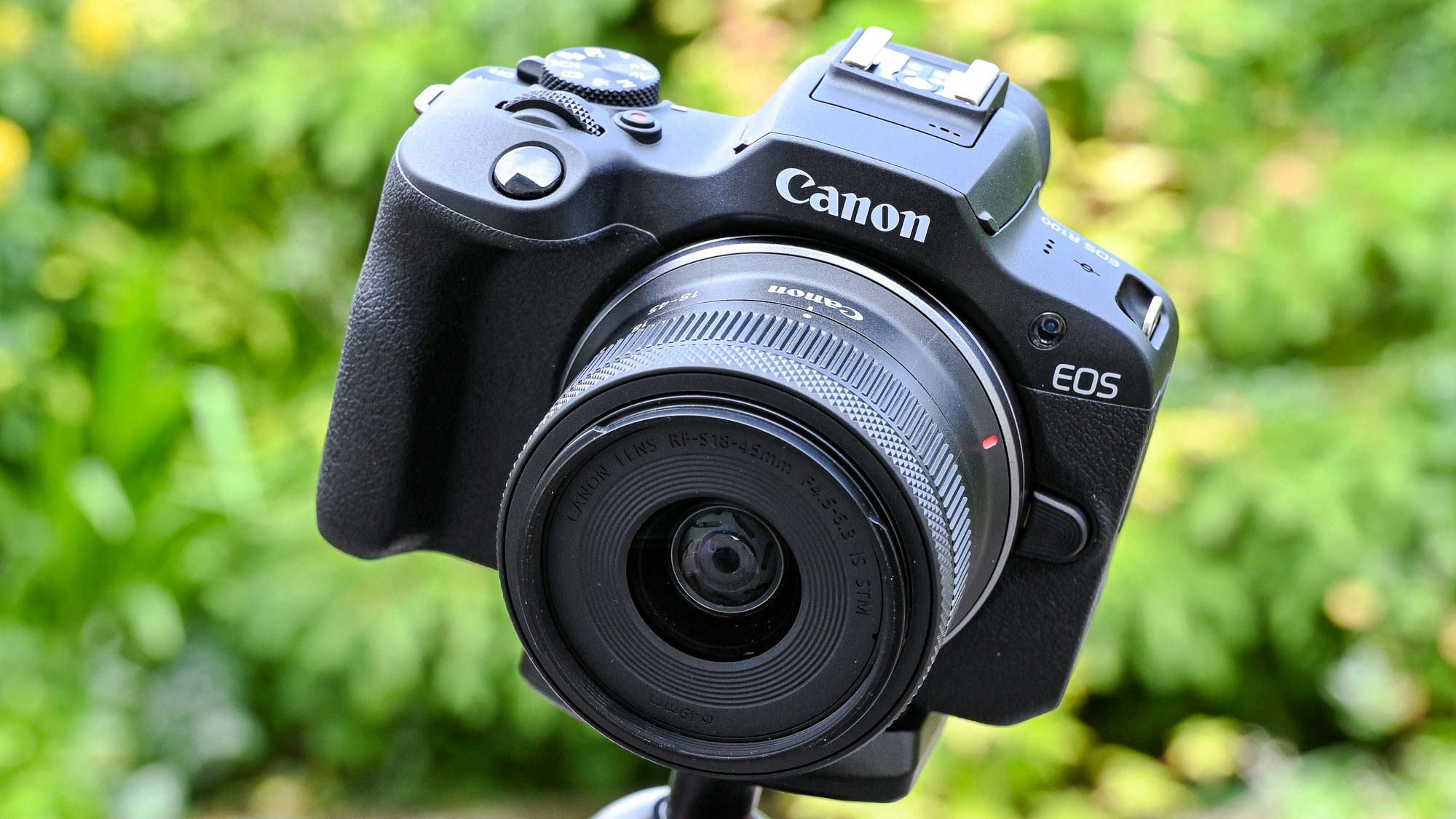
That really depends on the category of camera you need, and the definition of “cheap” changes based on said category. If you want the best image quality or a vlogging camera, you’ll need a mirrorless camera like the EOS R100, and cheap means around the $250-$400 mark. Action cameras, expect to spend around $175 - $200 for a cheap model.
Great instant cameras and compact cameras can easily be found for around the $100 mark, while affordable film cameras can be yours for very little more. If you want a cheap drone, you can expect to spend in the vicinity of $200.
How we test the best cheap cameras
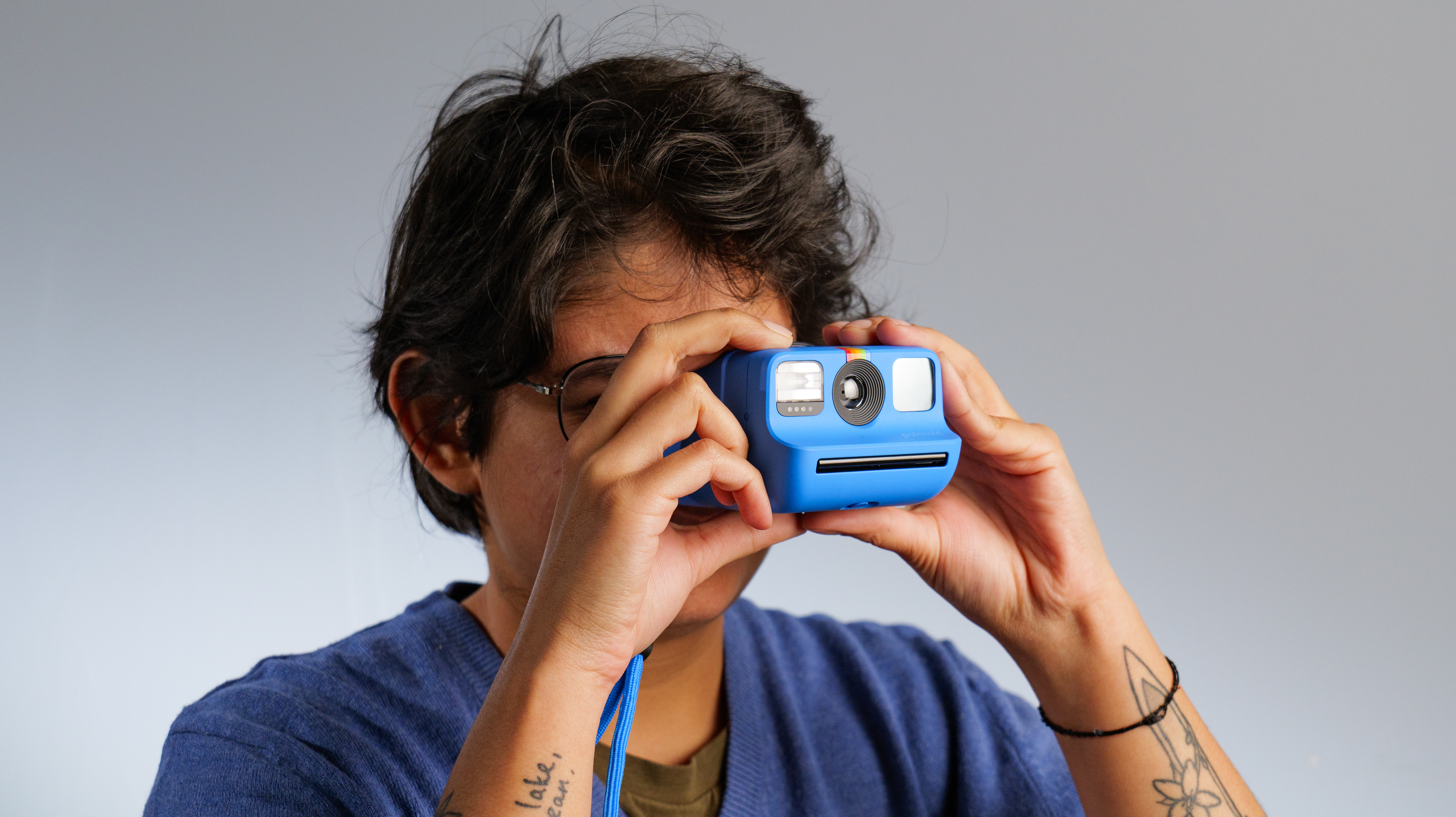
Every single camera on this list has been through the Tom’s Guide reviews process, which means they’ve all been thoroughly tested by Tom’s Guide experts. The testing process naturally differs for the different categories of cameras — we test an action camera differently to how we test an instant camera, for example.
However, there are many things all cameras have in common. We always test how sharp the camera optics are, looking for optical distortions and image artefacts. We always evaluate how well images turn out, how detailed they are and the color accuracy of the camera. We take lots of test shots or videos with each camera, enabling us to test autofocus, exposure metering and all the extra features such as AF modes.
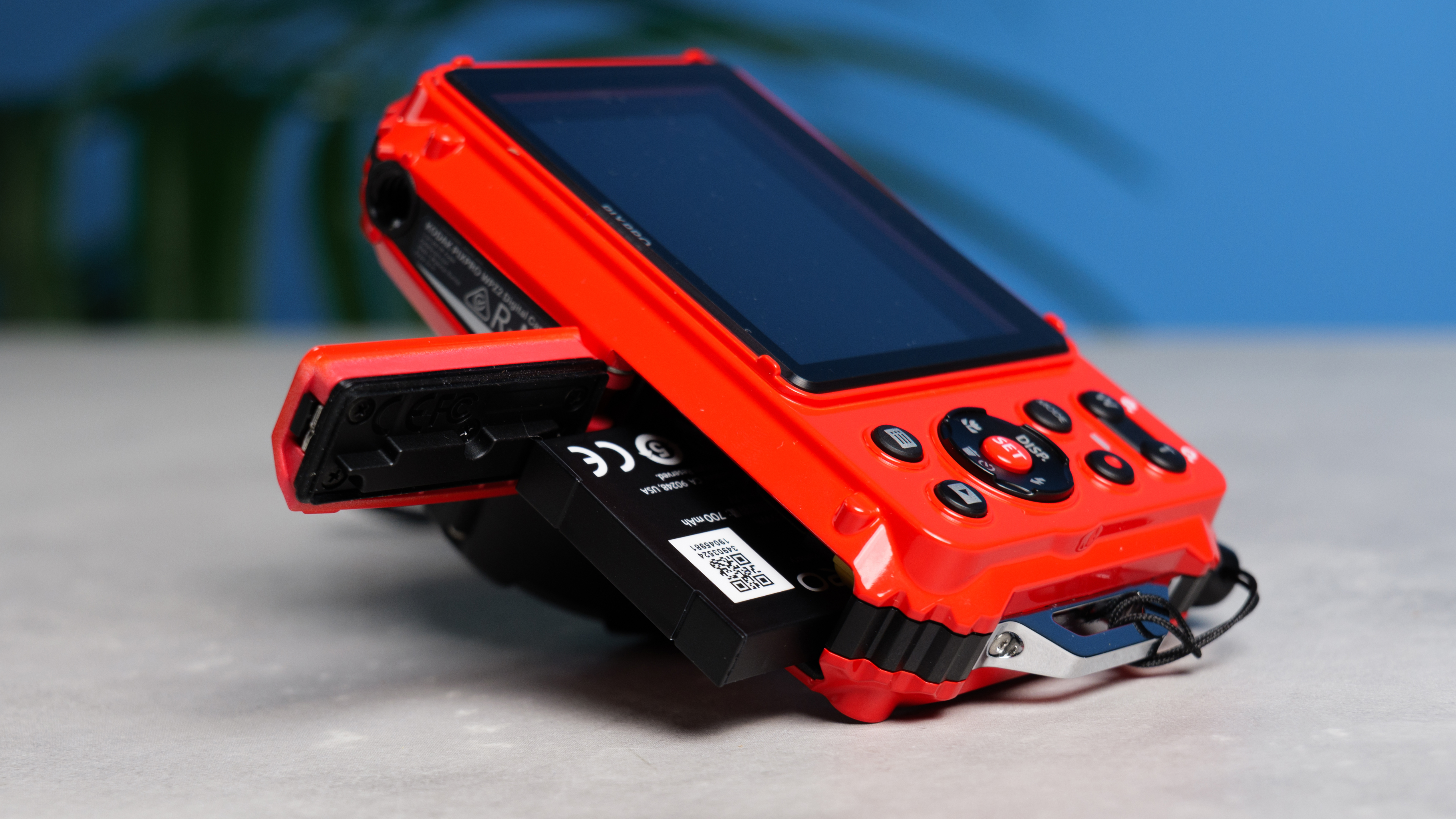
Naturally, we always evaluate the price of a product, test its build quality, and analyze both how easy the camera is to use and how sensibly it’s laid out. If there’s a smartphone app, we use it and evaluate how many extra features it adds, but also how user-friendly it is. We always evaluate the battery life of cameras, too.
We don’t just list the specs or features of these cameras either, and always analyze whether each of a camera’s features is good or bad, and why — that involves weighing it up against the product’s cost and competition. Throughout each review, we constantly compare each product to its rivals to help you make the most informed purchase. We’ve included links to the individual reviews for each camera within every entry, so you can get the full lowdown on each product if you want to know more.
More from Tom's Guide
We have plenty of other guides to help you choose the best tech at the right price. Next up, why not check out our guides on the best cameras, best mirrorless cameras and best action cameras. If you're looking to up your smartphone photography, check out our guide to the best iPhone lenses.
Sign up to get the BEST of Tom's Guide direct to your inbox.
Get instant access to breaking news, the hottest reviews, great deals and helpful tips.

Peter is a Senior Editor at Tom's Guide, heading up the site's Reviews team and Cameras section. As a writer, he covers topics including tech, photography, gaming, hardware, motoring and food & drink. Outside of work, he's an avid photographer, specialising in architectural and portrait photography. When he's not snapping away on his beloved Fujifilm camera, he can usually be found telling everyone about his greyhounds, riding his motorcycle, squeezing as many FPS as possible out of PC games, and perfecting his espresso shots.
- Nikita AchantaStaff Writer, Reviews
